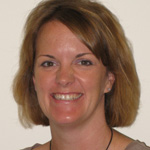SoTL Scholar-Mentors
Faculty members are involved in supporting the SoTL work of colleagues on campus in a variety of ways including as members of SoTL internal research grants, as volunteers in our SoTL Resource Group, and as co-facilitators of SoTL workshops. In addition, beginning in Fall 2013, faculty could apply for selection as a SoTL Scholar-Mentor. Scholar-Mentors (1-2 per semester) receive a course reassignment (or, in the summer, a stipend for specific tasks), travel funds to attend one or more SoTL conferences, and some operating funds for their own SoTL research. For the course reassignment, scholar-mentors are expected to work on their own SoTL research and, primarily, to take responsibility for certain SoTL support services depending on their expertise and interest. For example, scholar-mentors have facilitated workshops, writing groups, and mentoring programs; redesigned the SoTL webpage; drafted an external pre-proposal; written for the SoTL newsletter; organized a campus-wide SoTL celebration; designed and conducted a study of SoTL student researchers…and much more!

Michaelene CoxAssociate Professor, Department of Politics and Government My current SoTL-related research explores pedagogical merits of undergraduate and graduate student publishing efforts and conference presentations from the lens of social network theory. My research about these scholars-in-training includes surveys of student journal authors and content analysis of their published work, and surveys of ISU symposium student participants and their mentors. |

Jen FribergAssociate Professor, Dept of Communication Sciences and Disorders I engage in the scholarship of teaching and learning to examine student engagement and student learning outcomes in clinically-based educational experiences. My recent work has focused on academic service learning, use of technology in the classroom, and student note-taking practices. |

Anu GokhaleProfessor, Department of Technology My SoTL-related research focuses on enhancing student critical thinking skills by evaluating the effectiveness of: 1) innovative teaching methodologies like 'demonstrating abstract scientific concepts using analogical visual devices' and 2) collaborative learning techniques. Additionally, multiple NSF grants continue to fund our projects that seek to change students' attitudes toward science & technology and increase enrollment in computing-related majors. |

Phyllis McCluskey-TitusAssociate Professor, Educational Administration and Foundations One of my SoTL projects is about differences in teaching methods and student learning dependent upon whether the faculty member has had practitioner experience or not in the applied discipline. Another line of research is a six-year study on learning in collaborative service projects by first year undergraduates and graduate students. These projects are supported by the Cross Chair and CTLT as well as through my department, college, professional associations and the Wallace Foundation. |

Maria A. MooreAssistant Professor, School of Communication As a SoTL scholar, I am particularly interested in collaborative acts of civic engagement and primarily express my research through digital documentary production. My recent work explored the student experience of becoming an urban teacher, of participating in civic engagement projects, and of reflecting upon the experiences of being a student in both situations. I am currently in production on a documentary exploring student free speech acts on campus. |

Erin Mikulec
Assistant Professor, School of Teaching and Learning I have conducted several studies that examine student learning outcomes in a variety of in-class and out-of-class contexts. I've also researched pre-service secondary teachers participating in unique clinical field experiences as well as the learning outcomes of involvement in student organizations. My current projects focus on the impact of incorporating international perspectives into coursework and personal and professional development of students participating in study abroad programs. |
